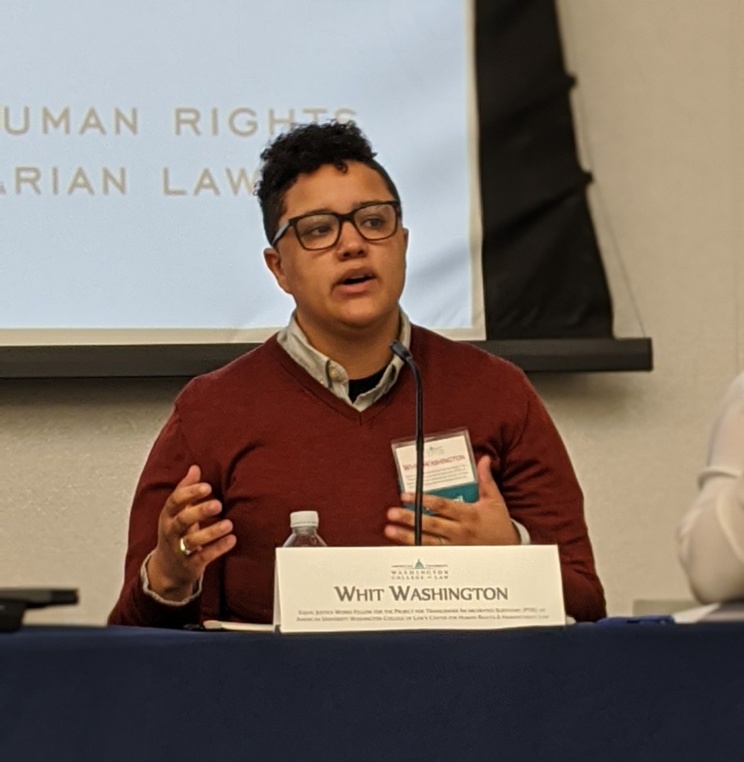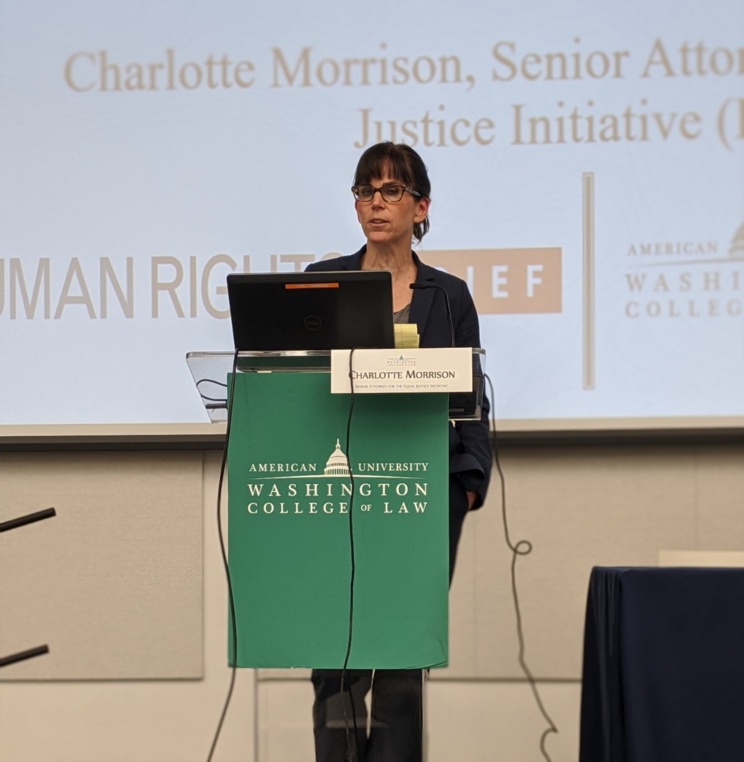Human Rights Brief Symposium Examines Conditions of Confinement
Feb. 22, 2020

On Feb. 21, 2020, the Human Rights Brief invited students to critically think about the victimization of people in prison during a symposium on “Examining Conditions of Confinement," which underscored how for marginalized people in prison, trends of prison abuse are compounded and concentrated with discrimination and exploitation.
During the event, Michelle Bonner, criminal justice reform consultant, pointed out that women in prison are 30% more likely to experience sexual assault, with most of that abuse stemming from the male staff. That rate is exacerbated for transgender people in prison.
“Not only is their liberty taken, but their sexual safety as well,” Bonner said.
“Trans inmates are 8 times more likely to be abused by staff,” said Whit Washington ’17, Equal Justice Works fellow and project manager for the Center for Human Rights and Humanitarian Law’s Project for Incarcerated Transgender Survivors.
Washington described how transgender people in prison are denied access to gender-affirming consideration—such as surgery, hormone supplements, clothes and even proper prison placements. Washington has found that many trans women are held in male facilities.

Isolation from society increases vulnerability, said Professor Brenda Smith, director of the Project on Prison Rape. “We have to create just and humane conditions for people in the community and in incarceration.”
“Whether you’re a prison abolitionist or not, think about prisons as a system invoking racism, sexism and other ‘-isms,’” said Jamie Argento Rodriguez, chief of Community Defender Division at the Public Defender Service for D.C. “Look at those who are truly victims of our legal system.”
The symposium’s keynote speaker Charlotte Morrison, senior attorney for the Equal Justice Initiative, has worked against the death penalty sentence and is advocating for a decrease in the permanent prison population.
While prisons prioritize a punitive rather than a rehabilitative function, Morrison reminded listeners that “every person is more than the worse thing they’ve ever done.”